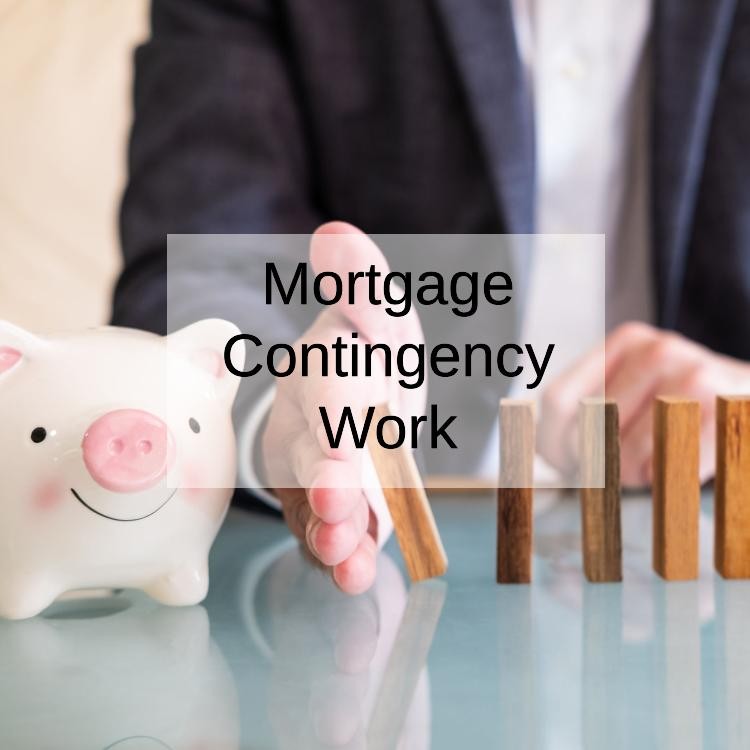A mortgage contingency is a crucial component of a real estate contract that protects first time home buyers loans by providing them with an opportunity to secure financing for the purchase of a property. In this guide, we will delve into the intricacies of how a mortgage contingency works, its significance in real estate transactions, and how it impacts both buyers and sellers.
Understanding the Mortgage Contingency Clause
A mortgage loan contingency clause is a contractual provision that allows a buyer to withdraw from a real estate transaction if they are unable to secure mortgage financing within a specified period. It serves as a safeguard for buyers, ensuring that they are not obligated to proceed with the purchase if financing falls through.
Purpose of the Mortgage Contingency Clause
The primary purpose of the mortgage contingency clause is to protect the buyer's interests by providing them with an exit strategy in case they encounter difficulties obtaining financing. It allows buyers to make offers on properties with confidence, knowing that they have the option to back out if they cannot secure a mortgage on favorable terms.
Components of a Mortgage Contingency Clause
A typical mortgage contingency clause outlines the conditions under which the buyer can exercise their right to terminate the contract. It specifies the timeframe for obtaining mortgage approval, the type of financing required, and any other conditions that must be met for the contingency to be satisfied.
How Does a Mortgage Contingency Work for Buyers?
For buyers, a mortgage contingency provides peace of mind and flexibility during the homebuying process. It allows them to proceed with the purchase knowing that they have a safety net in case financing does not materialize as expected.
Applying for Mortgage Approval
Once a purchase agreement is signed, the buyer begins the process of applying for loan mortgage rate approval with their chosen lender. The lender evaluates the buyer's financial background, creditworthiness, and the property itself to determine the terms of the loan.
Timeline for Mortgage Approval
The mortgage contingency typically includes a specific timeframe within which the buyer must obtain mortgage approval. This timeframe is negotiated as part of the purchase agreement and may range from 30 to 60 days or longer, depending on the circumstances of the transaction.
Exercising the Mortgage Contingency
If the buyer is unable to secure mortgage financing within the specified timeframe, they have the option to exercise the mortgage contingency clause and withdraw from the contract. In doing so, they may receive a refund of their earnest money deposit, provided they have complied with the terms of the contingency.
Implications for Sellers
While a mortgage contingency protects buyers, it also has implications for sellers, particularly in competitive real estate markets where multiple offers are common.
Impact on Seller's Consideration of Offers
Sellers must carefully consider offers that include mortgage contingencies, as they introduce a level of uncertainty into the transaction. Offers with stronger financial backing and fewer contingencies may be more appealing to sellers, especially if they are looking for a quick and seamless closing process.
Potential Delays in Closing
If a buyer exercises the mortgage contingency and withdraws from the contract, it can result in delays in closing and additional expenses for the seller. The property may need to be relisted, and the seller may incur carrying costs such as home mortgage loans payments, property taxes, and maintenance expenses during the interim period.
Negotiating the Mortgage Contingency
The terms of the mortgage contingency clause are negotiable and can vary depending on the preferences of the buyer and seller. Both parties should carefully consider the implications of the contingency and strive to reach mutually agreeable terms.
Negotiating the Timeline
Buyers may request a longer timeframe for obtaining mortgage approval to allow for unforeseen delays or challenges in the financing process. Sellers, on the other hand, may prefer a shorter timeframe to expedite the closing process and minimize uncertainties.
Specifying Conditions for Satisfaction
The mortgage contingency clause should clearly specify the conditions that must be satisfied for the contingency to be fulfilled. This may include obtaining a mortgage commitment letter from the lender, securing financing at a specified interest rate, or meeting certain appraisal requirements.
In a mortgage contingency is a vital component of real estate transactions that provides protection and flexibility for buyers while presenting considerations for sellers. Understanding how a mortgage contingency works and its implications for both parties is essential for navigating the first time home buyer loan process successfully. By negotiating clear and reasonable terms, buyers and sellers can mitigate risks and achieve their respective objectives in a real estate transaction.
Frequently Asked Questions (FAQ) - How Does A Mortgage Contingency Work?
Q1: What is a mortgage contingency?
A1: A mortgage contingency is a clause in a real estate contract that protects the buyer by making the purchase contingent upon obtaining financing. It allows the buyer to withdraw from the contract without penalty if they are unable to secure a mortgage loan.
Q2: How does a mortgage contingency benefit the buyer?
A2: A mortgage contingency provides the buyer with a safeguard against financial risk. It allows the buyer time to secure financing and ensures that they are not obligated to proceed with the purchase if they are unable to obtain a mortgage loan insurance on satisfactory terms.
Q3: What happens if the buyer cannot secure financing within the specified timeframe?
A3: If the buyer cannot secure financing within the specified timeframe outlined in the mortgage contingency clause, they have the option to terminate the contract and receive a refund of their earnest money deposit. The seller cannot force the buyer to purchase the property without financing in place.
Q4: Is a mortgage contingency common in real estate transactions?
A4: Yes, a mortgage contingency is a standard provision in many real estate contracts, especially in transactions involving financing. It is designed to protect the interests of both the buyer and the seller by ensuring that the transaction is contingent upon the buyer's ability to secure financing.
Q5: Can a buyer waive the mortgage contingency?
A5: Yes, a buyer can choose to waive the mortgage contingency if they are confident in their ability to secure financing without the protection of the contingency clause. However, waiving the mortgage contingency involves assuming greater financial risk, and buyers should carefully consider the potential consequences before doing so.
Q6: How does the mortgage contingency affect the seller?
A6: The mortgage contingency places certain obligations on the seller, such as providing necessary documentation and disclosures related to the property's condition and title. Sellers must also adhere to the timelines specified in the contract regarding the buyer's financing contingency period.
Q7: Can the seller cancel the contract if the buyer fails to secure financing?
A7: If the buyer fails to secure financing within the specified contingency period and chooses to terminate the contract, the seller cannot cancel the contract unilaterally. However, the seller may have the option to relist the property and pursue other offers from prospective buyers.
Q8: What is the typical timeframe for a mortgage contingency?
A8: The timeframe for a mortgage loan near me contingency varies depending on the terms negotiated between the buyer and seller. It is typically between 30 to 60 days but can be shorter or longer based on factors such as market conditions and the complexity of the financing process.
Q9: Can the buyer request an extension to the mortgage contingency period?
A9: Yes, the buyer can request an extension to the mortgage contingency period if they require more time to secure financing. However, the seller is not obligated to grant the extension, and the decision to extend the contingency period is subject to negotiation between the parties.
Q10: What should buyers consider when including a mortgage contingency in their offer?
A10: Buyers should carefully consider their financing options and financial situation before including a mortgage contingency in their offer. They should also be mindful of the timeframe specified in the contingency clause and work diligently to meet any deadlines outlined in the contract.
Q11: Can a buyer still lose their earnest money deposit if they exercise the mortgage contingency?
A11: In most cases, if the buyer exercises the mortgage contingency and terminates the contract within the specified timeframe, they are entitled to a refund of their earnest money deposit. However, buyers should review the terms of the contract carefully to understand any conditions that may impact the return of earnest money.
Q12: How can buyers protect themselves in the event of financing issues during the mortgage contingency period?
A12: Buyers can protect themselves by working closely with their mortgage loan lenders, providing all requested documentation promptly, and staying informed about the progress of their loan application. Additionally, buyers should communicate openly with their real estate agent and be proactive in addressing any potential financing challenges that may arise.
















